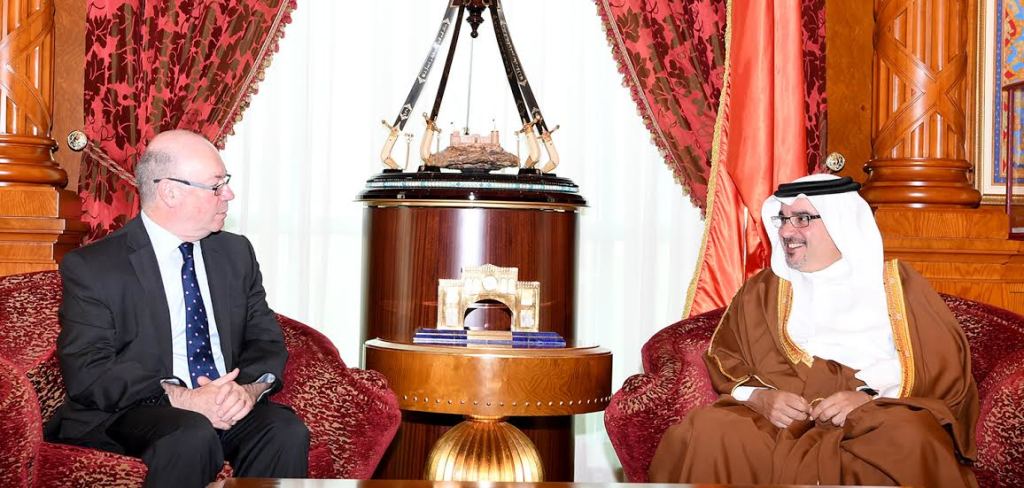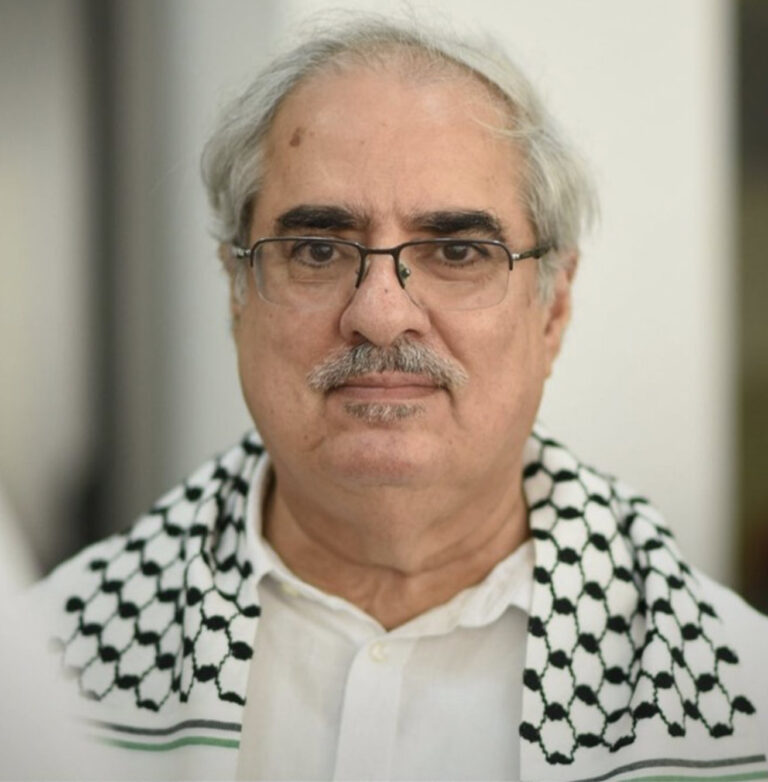19 October 2017 – Middle East Minister Alistair Burt praised Bahrain in a visit to the Gulf state today, a month after the UN High Commissioner for Human Rights condemned the country for use of torture and shutting down civil society.
Burt, the Foreign & Commonwealth Office Minister responsible for the Middle East, today met with Bahrain’s Crown Prince and Minister of Foreign Affairs. He attended the UK-Bahrain Joint Working Group, where the UK “welcomed positive steps taken by the Government of Bahrain recently, including the introduction of new legislation on alternatives to detention, and a unified family law that gives women and children across all communities extended rights under civil law.”
The FCO’s praise of Bahrain continued today, as the UK “outlined its commitment to support the Government of Bahrain build on its progress on reform and human rights issues, such as the creation of the human rights oversight bodies and the development of effective and accountable justice institutions.” Britain has spent over £5m in taxpayer money providing assistance to Bahrain, including to its oversight bodies. But the UN Committee Against Torture this year however expressed serious concern that “those bodies are not independent, that their mandates are unclear and overlap, and that they are not effective.”
Sayed Ahmed Alwadaei, Director of Advocacy, Bahrain Institute for Rights and Democracy:“Three members of my family were tortured and face sentencing at the end of this month as revenge against my human rights work in the UK. Their fate hangs in the balance. Alistair Burt dodged questions about their torture in parliament, and now instead of raising their cases in Bahrain, he is promoting the image of Bahraini institutions which are complicit in unlawful executions and persecution.”
The UK’s appraisal of Bahrain’s human rights situation is at complete odds with the findings of the United Nations and human rights organisations. Amnesty International last month published their latest report on Bahrain, titled “No One Can Protect You: Bahrain’s Year of Crushing Dissent.” Among the cases highlighted are the reprisals against the family of BIRD’s Director of Advocacy, Sayed Ahmed Alwadaei. In March 2017, Alwadaei’s mother-in-law, brother-in-law and cousin were arrested, interrogated about his human rights work, and tortured into confessing to criminal charges. The family face sentencing on 30 October, when they may be given between three and fifteen years in prison. Six UN experts expressed “grave concern” over the torture and reprisals of Alwadaei’s family.
In September, Amnesty International questioned Alistair Burt publicly accusing the UK of “lending cover” to Bahrain and raised Alwadaei’s family case specifically.
The UN High Commissioner for Human Rights in September condemned Bahrain for its “shut down” of democratic space and increasing reports of torture, saying, “they [the people of Bahrain] deserve real respect for their human rights.”
Recent parliamentary questions regarding Bahrain have been met with stock responses by Burt, who gave identical, curt responses to three questions (1, 2, 3) regarding human rights cases. These cases include the ill-treatment of female detainees, reprisals against Sayed Alwadaei’s family, and the health situation of Elyas Al-Mulla, a political prisoner and torture victim suffering Stage 3 colon cancer.
Alistair Burt previously visited Bahrain as Middle East Minister in 2013. At the time, he told Al Wasat, the only independent newspaper (now closed) in the country, that a resolution to Bahrain’s political crisis lies in the implementation of human rights reforms set out in the Bahrain Independent Commission of Inquiry (BICI) of 2011 and UN Universal Periodic Review of 2012.
Four years on from that interview, Al Wasat was indefinitely suspended and forced to close in June 2017 – one of many examples of the total “shut down” of civil society space in Bahrain.
BIRD continues to document reports of torture and mistreatment in Bahrain in 2017. Of particular concern is the torture and sexual abuse of female detainees, including Ebtisam Al-Sayegh, a human rights defender. Al-Sayegh was tortured and sexually abused by the National Security Agency in May, after the agency was granted law enforcement powers at the start of the year. She was rearrested in July, and is in pre-trial detention in Isa Town Women’s Prison.




